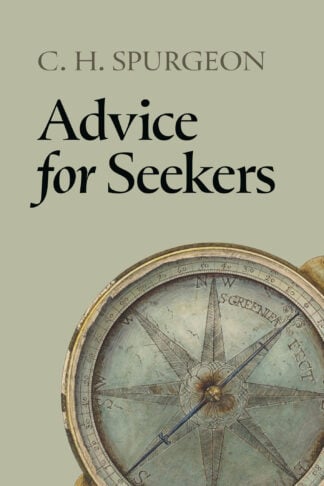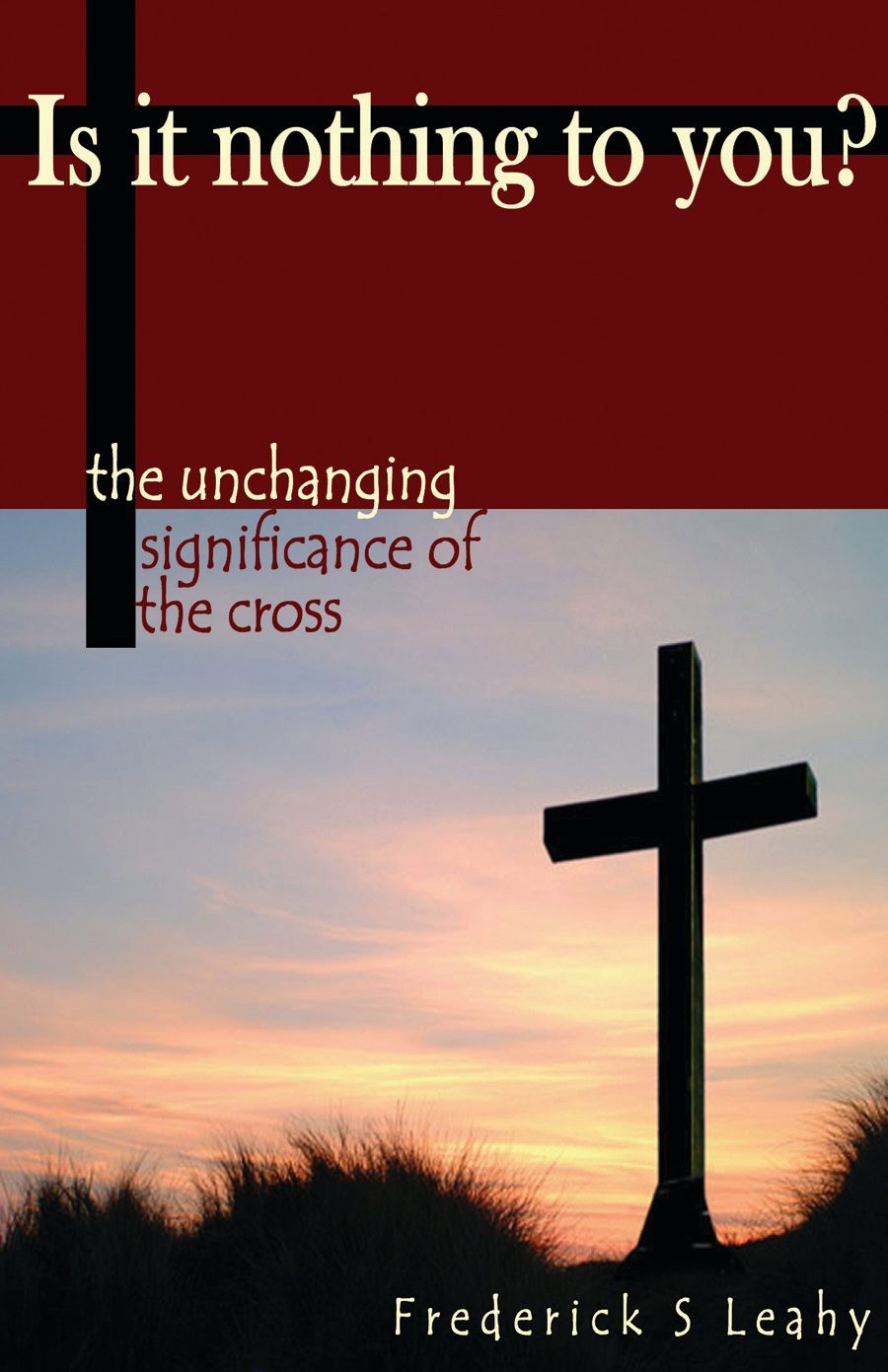Alarm at Last
And all the multitudes that came together to this sight, when they beheld the things that were done, returned smiting their breasts.
— Luke 23:48
Six hours our Lord has hung upon the cross. Upon the cross! We are very nearly at the point at which we can no longer contemplate putting even deliberate murderers to death. But the Romans crucified. They crucified the meanest, the basest of criminals; they crucified escaped slaves and other such poor creatures; and they crucified the Lord Jesus Christ. But now, after those six hours, the end has come. He cries with a loud voice, then utters the seventh and final word from the cross — ‘Father, into thy hands I commend my spirit’ and it is done. He has not only walked through the valley of the shadow of death, but has entered the portals of death itself. He has drunk to the very dregs the cup of his Father’s wrath. And now he is dead.
But the focus of our attention today is not upon the Lord Jesus himself in the first instance, but upon certain of the spectators, the lookers-on, in that scene which the evangelist so graphically describes for us. In these verses Luke tells us something about them and their feelings: v. 47, the centurion; v. 49, his acquaintances and the women; v. 48 [our text], ‘all the people,’ that is, the multitudes, the crowds who were there upon that solemn Friday afternoon. Of these last, the great bulk of those who witnessed these things, he says: ‘when they beheld the things that were done, [they] returned smiting their breasts.’ (American Revised Version)
1. You see here, first of all, the alarm which has come upon these people. Remember what has taken place in the past three hours. From the sixth hour, that is, from noon, there was a darkness over all the earth, till the hour of three; the sun was darkened. Then with the great, tearing sound of fabric wrenched apart, the veil of the temple itself was rent in the midst. And to this Matthew adds that ‘the earth did quake, and the rocks rent; and the graves were opened; and many bodies of the saints which slept arose, and came out of the graves after his resurrection, and went into the holy city, and appeared unto many’ (27:51-53). After all these unnatural, these supernatural, phenomena, it is no wonder that a spirit of fear and of dread, of apprehension and of terror, came upon these people, so that they smote their breasts and returned.
2. But that is not, of course, the whole story by any means. You see, therefore, second, that the alarm they felt was the result of a stricken, wounded conscience. They smote their breasts and returned. The strange occurrences of the day only served to awaken the voice of conscience in the hearts of the people. And it was with good reason that their hearts condemned them.
We think at once of Peter — poor Peter to whom Jesus had said, ‘Simon, Simon, Satan hath desired to have you, that he may sift you as wheat: but I have prayed for thee, that thy faith fail not’ (Luke 22:31, 32). He had thrice denied the Lord, and when Jesus was dead he had good reason to smite his breast in hopeless, convicted despair.
Another name that comes to mind is that of Judas Iscariot: poor Judas — or may we say ‘poor Judas’? The son of perdition, Jesus had called him, and he was that: unaffected by Jesus’ ministry, a thief, a betrayer. Greed and lust had got the best of him, and he sold his master for thirty pieces of silver. You remember the traitor’s kiss — what a fearful parody of the kiss of peace! But now he is overcome with remorse, and smiting his breast he attempts to cleanse his hands of innocent blood. In vain!
We think also of the Roman soldiers, and especially of this centurion- – sin-hardened, rough, unfeeling, charged with the carrying out of the execution. But he was struck by this man. He heard the words: ‘Father, forgive them; for they know not what they do.’ All the others he had ever heard, the two malefactors here also, cursed and swore and raged and reviled when crucified; but not Jesus of Nazareth. There was something different about him: he heard Jesus’ voice uplifted in the seven words; he saw the strange phenomena of the day. And though an ignorant heathen, he cried out: ‘Truly this was the son of God,’ ‘Certainly this was a righteous man.’ And he, too, smote his breast and returned.
But Luke refers directly to the spectators, the multitudes. We need say nothing about the Sanhedrin. We discover afterwards that some of the priests were converted, perhaps because of what they saw that afternoon. But now they show no penitence, nor do they in the days immediately following. The people, however, are different. They seem to have discovered that they, too, have had a share in this thing, that a black stain of guilt lies upon their hearts. They had reviled him, mocked him even while suffering on the cross. See Matthew 27:39ff. And now at last, after those six hours, those three hours of darkness, and the earthquake, and the rent rocks, and the frown of God, they understand something of their blame and guilt. And they ‘smote their breasts, and returned.’ It was with good reason that they did so. And it was high time also. They did not yet know fully what had taken place — that they had crucified the Lord of glory — but something of the dimensions of it was beginning to dawn upon them. And their consciences proceeded to rise up within them, and to accuse them, and to strike them down.
Can you see yourself among them? Why was Jesus there upon that cross? What moved and drove and drew and brought him to Calvary? You were not there. Of course you were not there! All that took place twenty centuries ago. And yet that cross of Christ is the turning point of the ages. And you were — you are — involved in the events of that day as much as if you had been actually present to join in with the jeers and the mockings of that harsh, cruel crowd of people. You may think yourself a Christian, but until you have taken your place amid that throng, and until you have learned to smite your own breast in strickenness of conscience because of it, how can you claim his benefits?
Whence come these sorrows,
Whence this mortal anguish?
It is my sins for which thou, Lord, must languish;
Yea, all the wrath, the woe, thou dost inherit,
This do I merit.
–Johann Heermann
But what is conscience? Conscience is the voice of God within us, something we have still from our creation in the divine image, a moral sense, a power of discerning right from wrong. It is conscience which makes us smite our breasts, toss and turn upon our beds for the evil we have done, which points the finger of blame at us, and which cries out against us: ‘the soul that sinneth, it shall die!’ How little there is of this among us. Or at any rate, how little there is of this among us that takes form, that manifests itself in the smiting of breasts, and the shedding of tears, and in mourning for sin.
3. But there is something more beside. You must see also, therefore, that while conscience-strickenness may be — I say: may be — a beginning, it is in no sense enough. These people are said to have smitten their breasts, and to have returned. Luke means, surely, that they returned to their homes, perhaps to their work, their places of business, many of them to their preparations for the Passover Sabbath that would soon be upon them. But they also returned — most of them — to their old lives, and their old equilibrium, and their old hardness of heart. We do not read of any mass turning to God, of any general repentance in Jerusalem. They were upset, disturbed, fearful, as men and women so often are in the face of awesome events, or even in the darkness of the night and in the loneliness of their own hearts. But as soon as the fleeting impression of that afternoon had worn off, they were quite the same as they had been. Someone has said that the best friend a minister has is the voice of conscience in the hearts of his people. That is true, but only relatively so. For something more is required.
And just that something more was supplied for a number of these breast-smiting people. On Pentecost Peter was able to appeal to this very afternoon and to these very feelings. See Acts 2:22-24. You see, on that day, that solemn, dark, yet bright and glorious Friday, God made possible in the cross of his own Son the removal of sin, the abrogation of its power, the blotting out of its guilt, and he accomplished the redemption of his people. Let consciences be stricken, therefore. It must begin there. But it must go on, by the power of the Holy Spirit, to the ‘Men and brethren, what shall we do’, of Acts 2:37, and then to obedience to the command: ‘Repent, and be baptized everyone of you for the remission of sins,’ of Peter’s sermon and of the gospel.
This article was first published in the June 1974 edition of the Banner of Truth magazine.
Of Further Interest

Description
And all the multitudes that came together to this sight, when they beheld the things that were done, returned smiting their breasts. — Luke 23:48 Six hours our Lord has hung upon the cross. Upon the cross! We are very nearly at the point at which we can no longer contemplate putting even deliberate murderers […]

Right with God
A Straighforward Guide For Those Searching For a Personal Faith in God
Description
And all the multitudes that came together to this sight, when they beheld the things that were done, returned smiting their breasts. — Luke 23:48 Six hours our Lord has hung upon the cross. Upon the cross! We are very nearly at the point at which we can no longer contemplate putting even deliberate murderers […]

Is It Nothing To You?
The Unchanging Significance of the Cross
Description
And all the multitudes that came together to this sight, when they beheld the things that were done, returned smiting their breasts. — Luke 23:48 Six hours our Lord has hung upon the cross. Upon the cross! We are very nearly at the point at which we can no longer contemplate putting even deliberate murderers […]
Latest Articles
On the Trail of the Covenanters February 12, 2026
The first two episodes of The Covenanter Story are now available. In an article that first appeared in the February edition of the Banner magazine, Joshua Kellard relates why the witness of the Scottish Covenanters is worthy of the earnest attention of evangelical Christians today. In late November of last year, on the hills above […]
A Martyr’s Last Letter to His Wife February 11, 2026
In the first video of The Covenanter Story, which releases tomorrow, we tell the story of James Guthrie, the first great martyr of the Covenant. On June 1, the day he was executed for high treason, he coursed the following farewell letter to his wife: “My heart,— Being within a few hours to lay down […]
